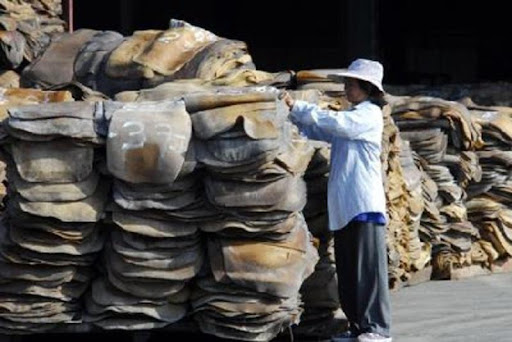
Indonesian Rubber Association (Gapkindo) chairman Daud Husni Bastari said on Monday that the mechanism was still poorly supervised and it was unclear whether stakeholders carried it out according to their commitments.
The review proposal will be rolled out during a meeting of the International Tripartite Rubber Council (ITRC) from Wednesday to Friday on Thailand’s resort island of Phuket, which will decide further moves on shoring up rubber prices.
“Our main concern is that we don’t know whether members have already implemented the supply curb consistently and whether there will be additional output from new plants,” Daud told The Jakarta Post in a phone interview.
The supply arrangement is based on the prediction of demand over a long span of time and is seen as strategic in curbing supply in the long term as overproduction will in turn significantly erode prices.
In a deal reached in August, three ITRC members - Thailand, Indonesia and Malaysia - representing 70 per cent of the world’s rubber output, pledged to curb supply to bolster prices through an agreed export tonnage scheme (AETS) and supply management scheme (SMS) after prices slumped to a record low of around US$2.7 per kilogram.
Under AETS, producers cut supply to the market by as much as 300,000 tons from October last year to March this year, while through the SMS, they controlled production through a variety of measures, including replanting and removing aging trees.
The measures came up after futures on the Tokyo Commodity Exchange plunged to a three-year low of 205.6 yen (US$2.09) in August last year.
Rubber for September deliveries gained 6.6 per cent to close at 270.3 yen per kilogram in Tokyo, the largest daily gain since November 2011, Bloomberg reported.
During October to November last year, Indonesia slashed as much as 111,000 tons from the market, inching closer to the commitment of 117,000 tons for six months, ending in March this year, according to the latest data available at Gapkindo. Thailand and Malaysia, the world’s largest producers, earlier planned to pare down 143,000 tons and 40,000 tons respectively.
Last year, Indonesia exported 2.44 million tons of natural rubber, down by 4.15 per cent from a year earlier.
This year, Indonesia expects to see its rubber output rise slightly by 2.36 per cent to 3.04 million tons, the association estimates.
Daud said that his association would also ask for the extension of the rubber supply arrangement with other Southeast Asian producing nations, such as Vietnam, Laos and Myanmar, during the meeting.
“Vietnam’s output will soon catch up with Malaysia, and our concerted efforts along with other countries in ASEAN may be good for managing supply and sustaining prices in the long run,” he said.
Thailand has said it would ask for an extension of the reduction in exports from the three biggest suppliers during the meeting to curb prices, said Thai Deputy Agriculture Minister Yuttapong Charasathien as quoted by Bloomberg.
However, Deputy Trade Minister Bayu Krisnamurthi said that Indonesia would not offer a position before the two measures were reviewed.-Asia News Network (April 10, 2013)a

No comments:
Post a Comment